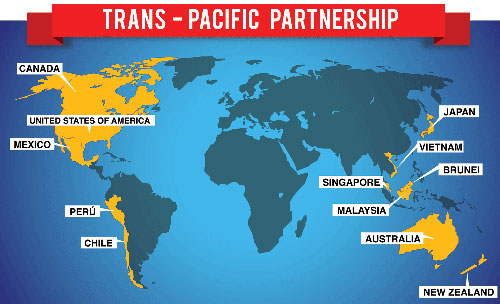TPP to include Environmental Commitments to Promote Social Responsibility and Enhance Environmental Performance
![]() Print this Article | Send to Colleague
Print this Article | Send to Colleague
Details of the recently-concluded Trans-Pacific Partnership trade agreement (the TPP) were released November 5, 2015. The government describes the TPP as "the largest, most ambitious free trade initiative in history."
In addition to expanding Canada’s foothold in the Asia-Pacific, a region that is expected to comprise two-thirds of the world’s middle class by 2030, the agreement promises "the most ambitious set of environmental commitments to date, targeting a wider range of trade-related environmental priorities."
A technical summary of the environmental commitments notes that the 12 Parties to the agreement have agreed to:
- effectively enforce environmental laws, and not waive or derogate from these laws in order to promote trade or attract investment;
- promote public awareness, participation, enhanced accountability and transparency with respect to environmental law and policy;
- promote corporate social responsibility and voluntary measures to enhance environmental performance, as a complement to domestic regulatory measures;
- encourage trade in environmental goods and services;
- combat illegal fishing, illegal logging and illegal wildlife trade;
- promote the conservation of biodiversity and protecting the marine environment; and
- recognize the importance of addressing climate change and the importance of multilateral environment agreements (MEAs) in protecting the environment including commitments related to the Montreal Protocol on Substances that Deplete the Ozone Layer, the International Convention for the Prevention of the Pollution from Ships (MARPOL), and the Convention on International Trade in Endangered Species of Wild Fauna and Flora (CITES).
In addition, the TPP Parties agreed that emergency measures necessary for the protection of human, animal, or plant life or health may be taken provided that the Party taking them notifies all other Parties. The Party adopting an emergency measure will review the scientific basis of that measure within six months and make available the results of these reviews to any Party on request.
The agreement, which includes a series of side deals for Canada and other signatories, is still subject to ratification by all the Parties before it can come into force.
The trade agreement could impact our private sector members who may find it easier to expand into the signatory markets. On the flip side, the new agreement could also increase competition with fewer trade barriers.

